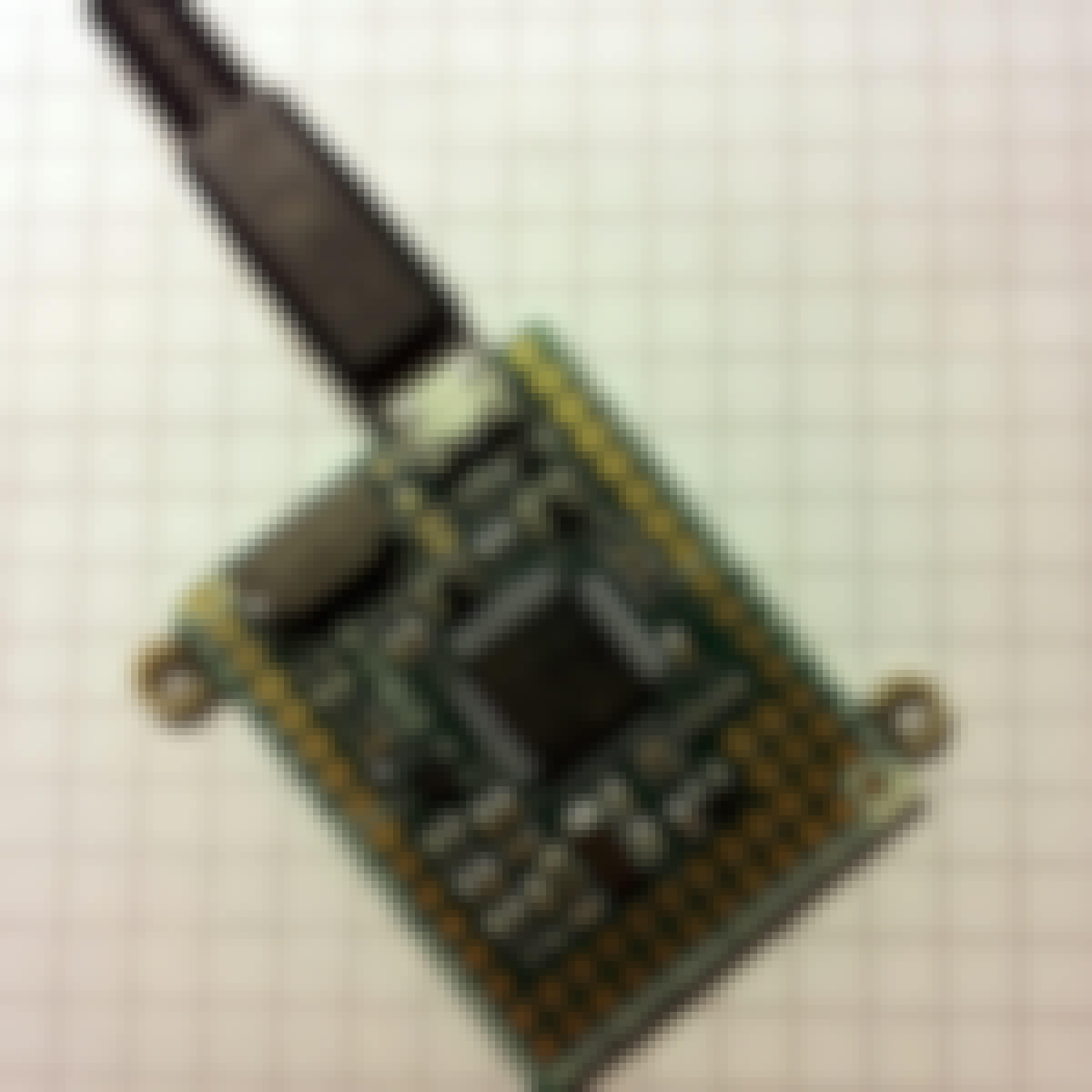Filter by
The language used throughout the course, in both instruction and assessments.
Explore the Wireless Course Catalog


University of Colorado Boulder
Skills you'll gain: Embedded Systems, Human Computer Interaction, Prototyping, User Interface (UI) Design, User Interface and User Experience (UI/UX) Design, Usability, HTML and CSS, Internet Of Things, jQuery, Mobile Development, Wireless Networks, Artificial Intelligence and Machine Learning (AI/ML), Operating Systems

Skills you'll gain: Penetration Testing, Open Web Application Security Project (OWASP), Vulnerability Scanning, Cyber Security Assessment, Vulnerability Assessments, Intrusion Detection and Prevention, Network Security, Active Directory, Windows PowerShell, Wireless Networks, Microsoft Windows, Linux Commands, Virtual Environment

Skills you'll gain: Cloud Computing, Software-Defined Networking, Wireless Networks, Cloud Services, Ansible, Network Architecture, Network Security, Network Monitoring, Local Area Networks, Network Infrastructure, Network Performance Management, Virtualization, IT Automation, Computer Networking, Firewall, Authentications, Generative AI, Network Protocols, Command-Line Interface, Application Programming Interface (API)

Skills you'll gain: TCP/IP, Network Architecture, Networking Hardware, Network Routers, Network Planning And Design, General Networking, Network Security, Dynamic Host Configuration Protocol (DHCP), Network Infrastructure, Network Engineering, Network Administration, Computer Networking, Network Troubleshooting, Network Protocols, Network Switches

Skills you'll gain: Remote Access Systems, Local Area Networks, Software Installation, Command-Line Interface, Microsoft Windows, System Configuration, Threat Detection, Information Technology Operations, Wireless Networks, Systems Administration, Network Security, Desktop Support, TCP/IP, Mobile Security, Peripheral Devices, USB, Operating Systems, Computer Hardware, Data Storage Technologies, Hardware Troubleshooting


Illinois Tech
Skills you'll gain: Virtualization, Cloud Computing, Cloud Computing Architecture, Virtual Machines, Cloud Services, Mobile Security, Display Devices, Computer Hardware, Wireless Networks, Networking Hardware, Operating Systems, Containerization

Skills you'll gain: Systems Integration, Engineering Design Process, Simulation and Simulation Software, Mathematical Modeling, Engineering Analysis, Matlab, Engineering Software, Engineering, Mechanical Engineering, Electrical and Computer Engineering

Skills you'll gain: Vulnerability Scanning, Vulnerability Assessments, Linux, Linux Administration, Network Security, Role-Based Access Control (RBAC), Identity and Access Management, Linux Commands, Network Monitoring, System Monitoring, Network Administration, Hardening, Continuous Monitoring, Information Systems Security, Security Controls, Wireless Networks, Firewall, Penetration Testing, Cybersecurity, Threat Detection

Skills you'll gain: Embedded Systems, Internet Of Things, Vibrations, Civil Engineering, Electronic Systems, Structural Engineering, Maintenance, Repair, and Facility Services, Wireless Networks, Automation, Environmental Monitoring, System Monitoring, Continuous Monitoring, Computer Programming Tools, Electronic Components, Peripheral Devices

Skills you'll gain: Apple iOS, Swift Programming, Apple Xcode, Mobile Development, User Interface and User Experience (UI/UX) Design, Application Development, User Accounts, UI Components, Wireframing, Authentications, Application Deployment


Johns Hopkins University
Skills you'll gain: MITRE ATT&CK Framework, Penetration Testing, Public Key Infrastructure, Threat Modeling, Cryptography, Security Testing, Cyber Threat Intelligence, Mobile Security, Cybersecurity, Application Security, Vulnerability Assessments, Network Security, Threat Detection, Encryption, Operating Systems, Web Applications, Malware Protection, Technical Writing, Information Systems Security, Wireless Networks
Wireless learners also search
In summary, here are 10 of our most popular wireless courses
- Rapid Prototyping of Embedded Interface Designs: University of Colorado Boulder
- Intermediate Ethical Hacking Hands-on Training: Packt
- Network Management, Automation, and Emerging Technologies: Packt
- Network Foundations and Addressing: Packt
- CompTIA A+ Certification Core 2 (220-1102): Packt
- Mobile Computing and Cloud: Illinois Tech
- Designing and Simulating Physical Models: MathWorks
- Linux for Security Experts: Codio
- CPS Design with ARM Core using MicroPython for Industries: L&T EduTech
- المشروع المتقدم لتطبيقات iOS: Meta















